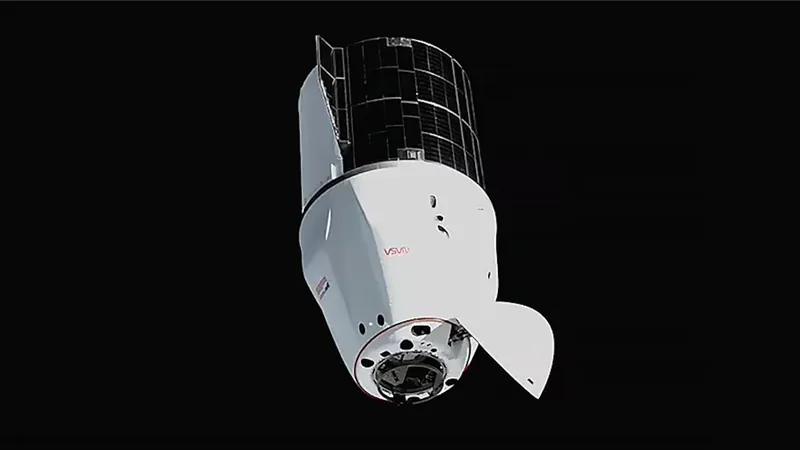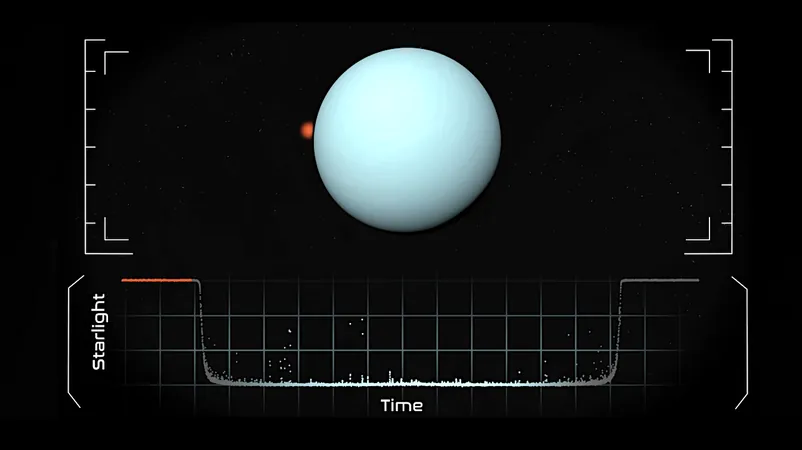
ELVIS Takes to the Stars: Revolutionary 3D Microscope Launches to ISS to Unlock Space Microbe Mysteries
2025-04-22
Author: Jia
A groundbreaking microscope has just arrived at the International Space Station (ISS), ready to delve into the secrets of life's resilience in the cosmos! Say hello to the Extant Life Volumetric Imaging System, or ELVIS, designed to propel our understanding of life's adaptability under extreme conditions.
This innovative technology, developed by Portland State University (PSU) in collaboration with NASA's Jet Propulsion Laboratory, was delivered via SpaceX's Dragon cargo capsule during its 32nd resupply mission for NASA.
ELVIS leverages advanced holographic techniques to create stunning 3D images of microbes and other cells, shining a light on how microscopic life withstands the harsh realities of space. The insights gained could guide future searches for life on other planets, especially on promising candidates like Jupiter's icy moon Europa and Saturn's Enceladus.
What sets ELVIS apart from traditional microscopes is its ability to offer a volumetric perspective, allowing researchers to observe the intricate details and behaviors of living cells in three dimensions. This capability is a game changer for scientists studying the effects of microgravity—an environment that only the ISS can provide consistently.
"We are thrilled to utilize the ISS National Lab to prepare ELVIS for future space exploration missions," stated Jay Nadeau, a PSU physics professor and the project's principal investigator.
Nadeau first championed the idea of using holographic microscopy as a life detection method back in 2017. She argued that this advanced technique could spot signs of life that standard 2D microscopes might overlook. "Distinguishing between a microbe and a speck of dust can be surprisingly challenging," she noted.
With its superior ability to track even the slightest cellular movements, ELVIS not only hopes to identify microbes among inert debris but also to monitor structural changes in cells under the unique conditions of space.
During its mission aboard the ISS, ELVIS will focus on two particularly resilient Earth organisms: the versatile microalga Euglena gracilis and the cold-loving bacterium Colwellia psychrerythraea, typically found in deep ocean waters. Through this research, scientists aim to uncover genetic and observable changes that might enable life to thrive in extraterrestrial environments.
Built to withstand the rigors of space, ELVIS features durable components and automation that minimize the need for astronaut intervention, allowing for seamless experimentation even in the challenging conditions of orbit.
Get ready, world! ELVIS is on a mission to rewrite our understanding of life's potential beyond Earth.



 Brasil (PT)
Brasil (PT)
 Canada (EN)
Canada (EN)
 Chile (ES)
Chile (ES)
 Česko (CS)
Česko (CS)
 대한민국 (KO)
대한민국 (KO)
 España (ES)
España (ES)
 France (FR)
France (FR)
 Hong Kong (EN)
Hong Kong (EN)
 Italia (IT)
Italia (IT)
 日本 (JA)
日本 (JA)
 Magyarország (HU)
Magyarország (HU)
 Norge (NO)
Norge (NO)
 Polska (PL)
Polska (PL)
 Schweiz (DE)
Schweiz (DE)
 Singapore (EN)
Singapore (EN)
 Sverige (SV)
Sverige (SV)
 Suomi (FI)
Suomi (FI)
 Türkiye (TR)
Türkiye (TR)
 الإمارات العربية المتحدة (AR)
الإمارات العربية المتحدة (AR)